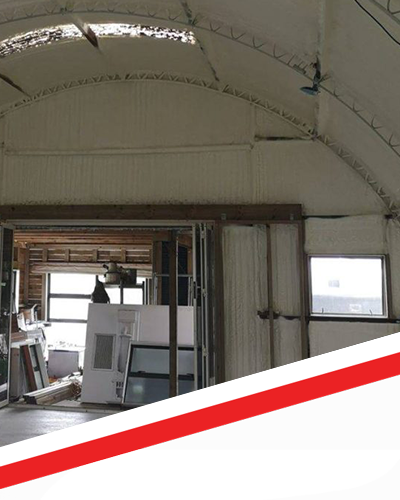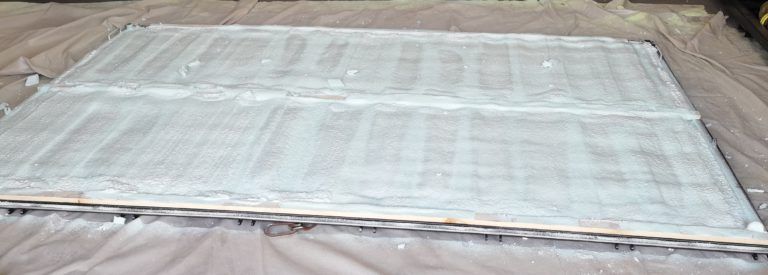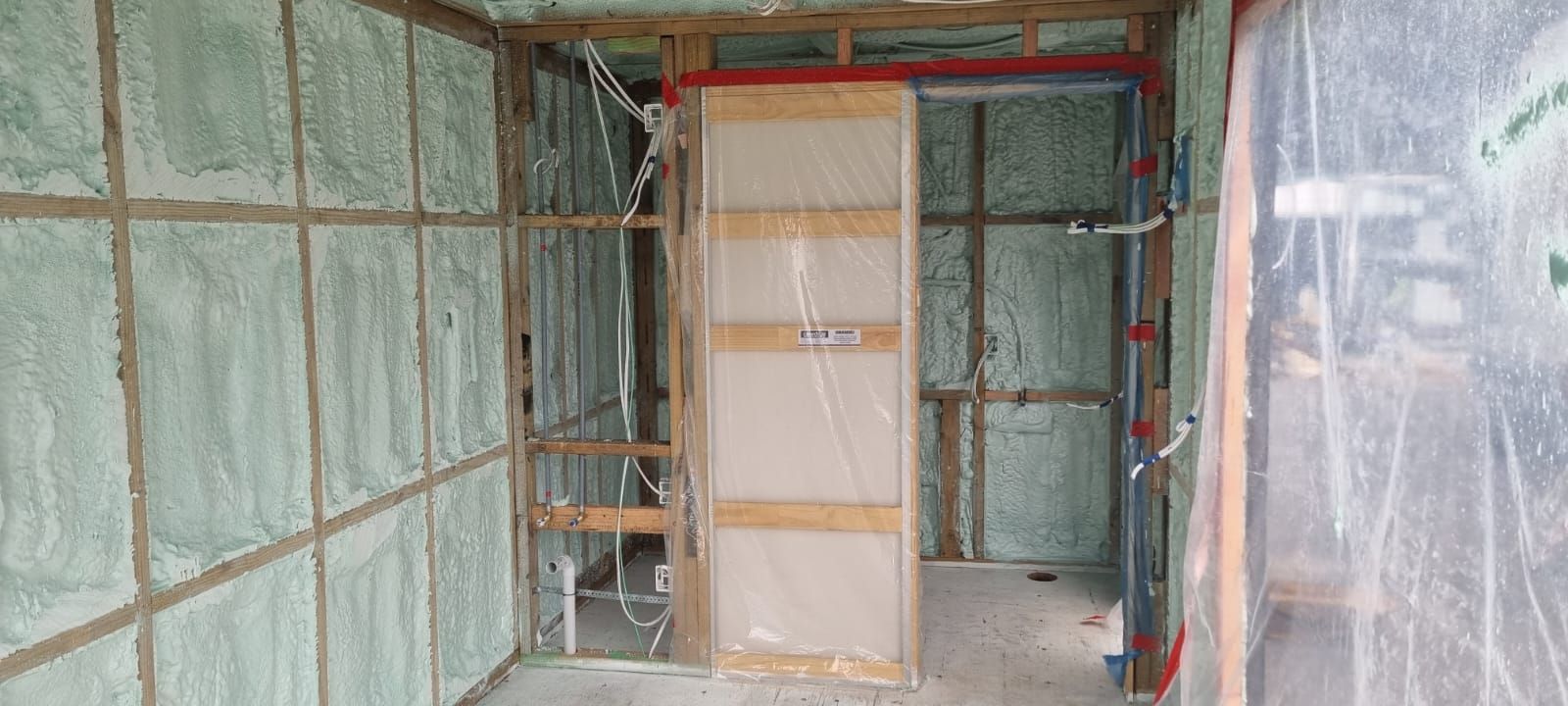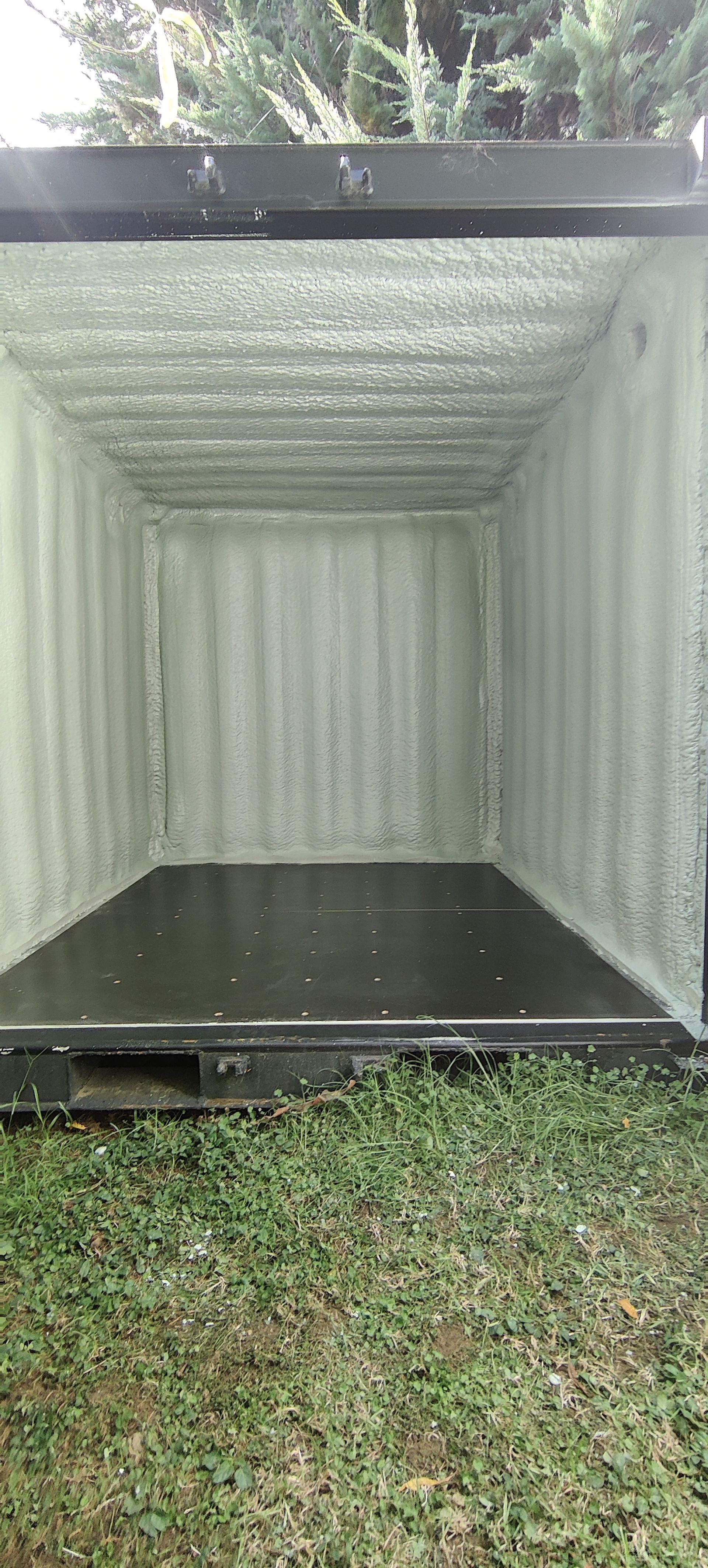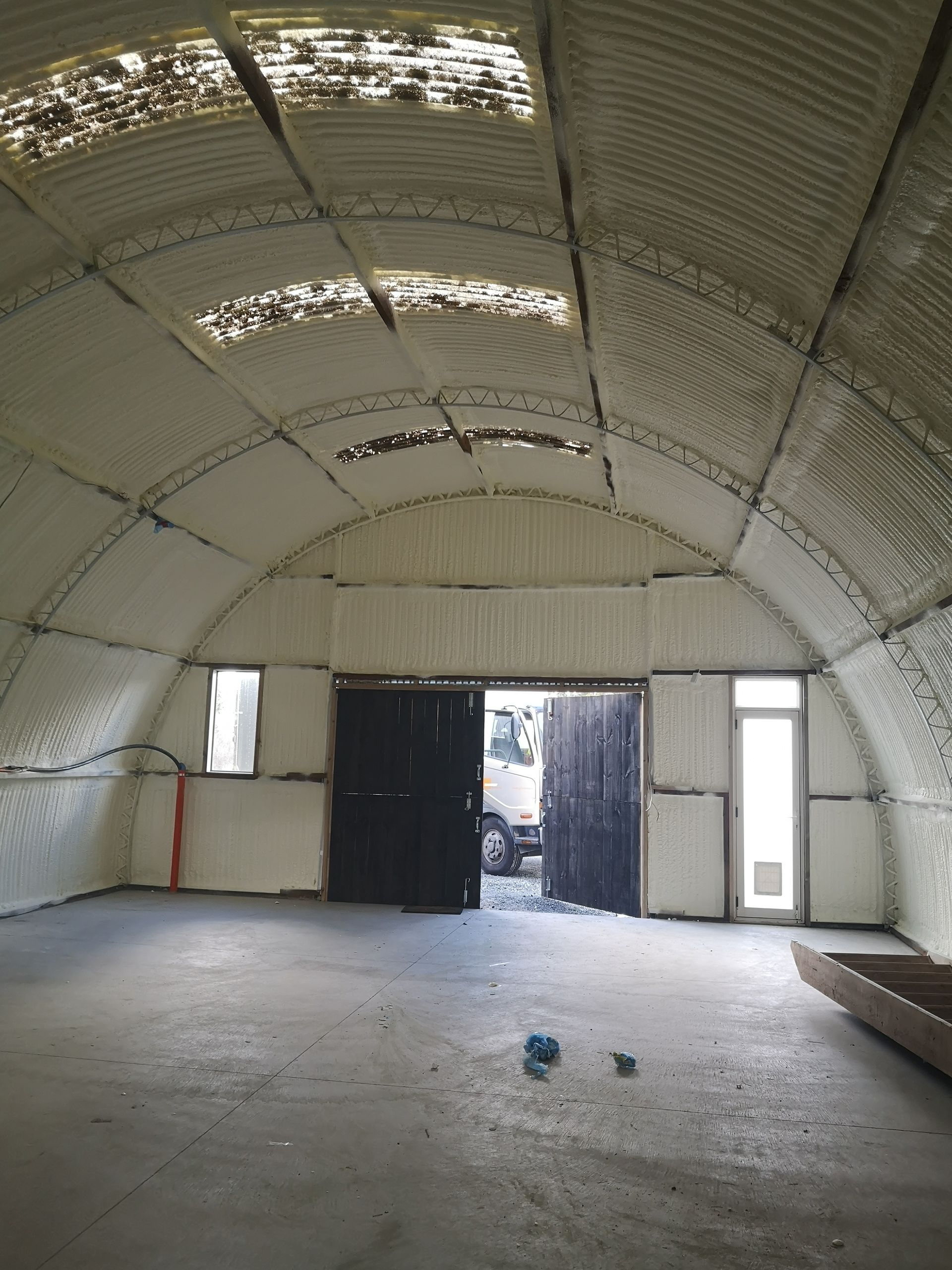
The Best Choice
Spray Foam Insulation Services
Polyurethane spray foam is the optimum solution for all your insulation needs. It is a seamless, “spray-in-place” insulation. We have closed-cell options that are suited to high insulation requirements or where a vapour barrier is needed. Closed-cell spray foam offers the most efficient insulation available for most uses and can greatly reduce heating or cooling costs.

Noise Control & Cavity Filling
Flexible Open Cell Spray Foam Solutions
We also offer open-cell options where noise insulation or cavity filling is needed. Whatever your commercial insulation requirements, our spray foam is the answer. We are certified applicators and have CodeMark certification. Please contact us to discuss your insulation requirements and select the appropriate foam for your application.

Thermal Performance & Moisture Resistance
Closed Cell Spray Foam Insulation
Closed-cell spray foam is comprised of a 90% closed-cell structure, thus drastically reducing the chances of water absorption or transmission. Polyurethane spray foam insulation also has tremendous thermal properties. Our closed-cell foam has an R-value of 1.1 K·m²/W per 25 mm, making it one of the most efficient insulation options for residential or commercial insulation. We prefer to use closed-cell foam for most situations requiring excellent insulation properties, as it has the highest R-value, lowest permeability for water vapour transmission, and adds some structural integrity as well as reducing noise transmission. Not all spray foams provide these benefits.
Closed-cell spray foam is the ideal insulation solution for commercial insulation applications, particularly in cold storage facilities, as it provides a vapour barrier that prevents condensation.
At NZAS, we offer a complete range of polyurethane foams.
- Low-density open-cell foams are used in household, commercial, or industrial insulation where a cost-effective solution is needed to fill cavities and reduce noise transmission.
- Closed-cell foams are used in domestic, commercial, and industrial environments to provide excellent insulation properties and condensation barriers.
- High-density foams for structural strength.
- Soft and flexible foams for use as padding or props and sets for the film industry.

Frequently Asked Questions
Spray Foam Insulation
What is spray foam insulation?
Spray foam insulation, often made from polyurethane foam, is applied as a liquid and then expands into a foam, creating a tight seal that provides excellent thermal insulation. It is commonly used in homes and buildings in New Zealand to improve energy efficiency.
How much does spray foam insulation cost per square metre in New Zealand?
The cost of spray foam insulation, which often uses polyurethane foam, can vary depending on several factors, including the type of foam used and the specific requirements of your project. For a precise quote, contact NZAS.
What are the benefits of using closed-cell foam for insulation?
Closed-cell foam, a type of polyurethane foam, offers several benefits, including superior thermal insulation, moisture resistance, and structural reinforcement. It is denser and provides a higher R-value per inch compared to open-cell foam, making it an excellent choice for insulation in New Zealand's varied climate.
How effective is spray foam insulation compared to other types of insulation?
Spray foam insulation, particularly when made from polyurethane foam, is highly effective compared to traditional insulation types like fibreglass or cellulose. It provides a seamless air barrier, reduces energy loss, and can significantly lower heating and cooling costs. Additionally, it helps with soundproofing and moisture control.
Can spray foam insulation be used in existing homes in New Zealand?
Yes, spray foam insulation can be used in both new constructions and existing homes. It can be applied to walls, attics, basements, and crawl spaces. For existing homes, it’s important to work with a professional installer to ensure proper application and maximise the benefits of the insulation.
How does spray foam insulation work?
Spray foam insulation, commonly made from polyurethane foam, works by spraying a liquid mixture that expands into a foam. This foam fills gaps and cracks, creating an airtight seal. Once it hardens, it provides excellent insulation, reducing energy loss and improving indoor comfort.
Ready to improve your insulation? Contact us now on 02 7304 9784 or 02 1797 487 for a free consultation.

